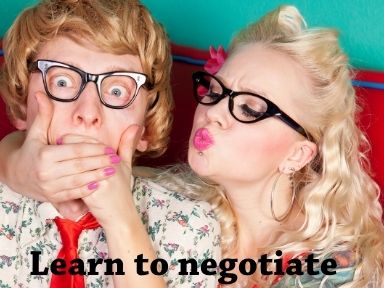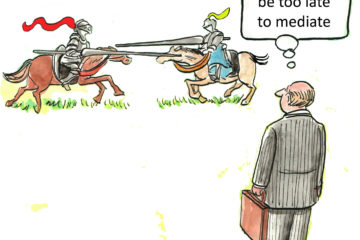
FBI hostage negotiator Chris Voss can teach us an enormous amount about getting on with others. His book Never Split the Difference comes from years of dealing with the most challenging hostage situations around the world.
He says a hostage negotiator can’t afford to split the difference.
Picture a hostage taker with four hostages, demanding six million dollars and a getaway plane to Cuba.
Negotiator: Let’s split the difference. What about you take two people and give us two and we’ll give you three million dollars and a helicopter to New Jersey.
They always had to get it right.
Successful negotiators use what he calls tactical empathy.
Tactical empathy is where you:
- Take an inventory of the person you’re talking to
- Consider their issues
- Describe their situation back to them, calmly.
This definition fits with one he later learned at Harvard University which defines empathy as:
“Describing and demonstrating an understanding of the needs, interests and perspective of your counterpart without necessarily agreeing”
You don’t have to like the other person or show them sympathy. You certainly don’t have to agree with them.
You just have to do these three things:
- Use a soft, easy tone of voice that is non-judgemental and non-critical.
- Listen so that the other person feels heard.
- Don’t dispute anything that the other person says. Rather, listen and acknowledge what concerns them.
On this final point Chris Voss says the following.
There’s a fine line here, and it’s where the real power of tactical empathy comes from (and empathy, more broadly, for that matter). You don’t agree, but you don’t disagree, either.
Here’s an example:
If you know they feel you’re ignoring what they want, instead of denying it, call it out with a label.
Don’t say, “I don’t want you to think we’re ignoring what you want.”
Do Say, “I’m sure it seems like we’re ignoring what you want.”
That’s just an observation. You’re not agreeing, and you’re not disagreeing. And that’s tactical empathy, You’re making the tactical choice to defuse a negative by labelling it.
You don’t have to be a hostage negotiator to use tactical empathy. Try it with anyone in just about any situation. When you see it works, you will want to do it even more.
Learn more about managing emotions in our online course.
